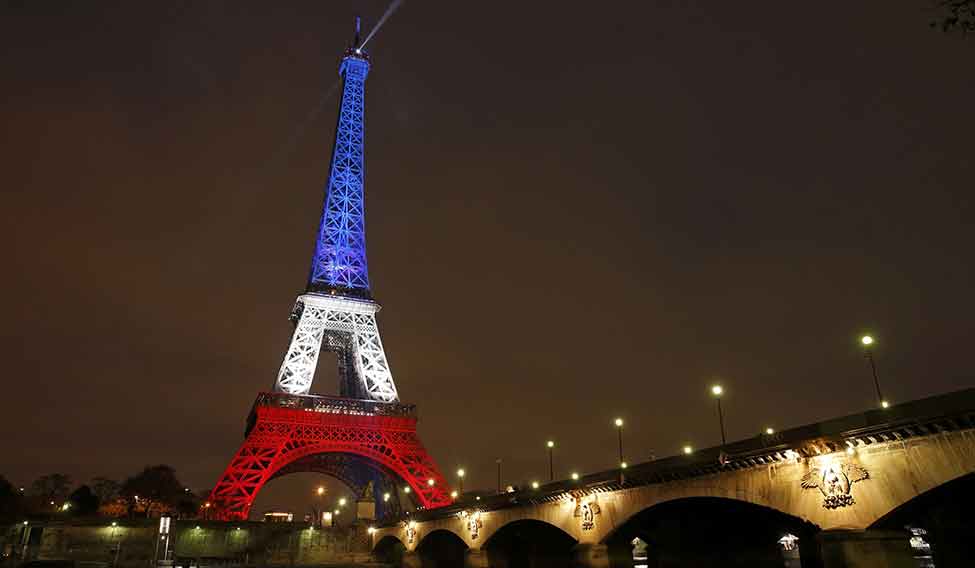True to its name, the city of lights, Paris never sleeps at night. Nights here are more colourful, livelier and lovelier than days. And, weekends have a gay abandon about them.
November 13, Friday, was different. Paris didn't sleep that night, too, but in grim tension, not in gay abandon. A night when bullets and bombs were heard above the beats of music and laughter.
Ambulances and police vehicles sped through the streets, blaring sirens; people switched on television news channels for any and every bit of news; families and friends desperately called each other, especially those who were out, and most were.
The real picture, a scary one, started emerging by midnight. The city was under attack at a scale not seen after the days when Adolf Hitler's armies pounded the city and the marched through its streets.
I heard ambulance sirens from my apartment in central Paris, and didn’t think anything unusual. It was an overseas call asking after my safety that alerted me to what was happening around where I stayed. By then, the city was under police control with military vehicles rolling down the streets. Restaurants and public places were ordered to down their shutters. France was at war, as President Hollande would declare two days later.
The magnitude of the massacre began to emerge slowly. No one slept that night. They were either glued to the television or computer screens or worried and waiting for those who were out. Some of them were never to return.
What struck me was the similarity of the attack to what happened in Mumbai in November 2008, which is still fresh in our memory. The pattern was similar—simultaneous, rolling attacks using automatic weapons, targeting multiple, crowded public locations of gaiety.
I was worried about my friends, some of whom were avid concert goers and football fans. A colleague was going through hell. His son had gone to a concert. At 3.30am, he returned home. That is Paris. Everyone had a dear or near one out that night.
Meanwhile, I called up my family in India to let them know that I was safe. Most of them were asleep with no idea about the attacks, at so early an hour.
Paris looked like a ghost town that Saturday morning. Everything was shut and the streets were empty. The area where I live, close to the Louvre and the Seine, usually overflows with people on a Saturday—tourists, families on weekend outings, joggers along the river bank, packed restaurants, crowded shops and so on. Not that Saturday. There were only a few people on the road, all with worry writ large on their faces.
Police vehicles thronged the main streets. The government ordered a state of emergency and advised people to stay indoors until further orders. All public places, museums, tourist attractions and shopping centres were closed. The metro ran a skeletal service. The aim, evidently, was to avoid easy targets for follow-up attacks.
The only one whom I found at his usual place of work was a person from Haryana, who sells ‘love locks’ on a bridge on the Seine. He was busy playing on his mobile as there were no tourists around.
But Paris took just a day to recover. Like Mumbai recovered from its shock, Paris, too, did. By Sunday evening, shops opened, on Monday offices opened, metro ran and by Monday evening, Paris was singing and swinging again. The Eiffel Tower was illuminated in national colours on Monday, museums opened on Tuesday.
And, the police were still looking for the ones that got away.






